Malaysian leader condemns ‘unfair’ gay sex law used to imprison him
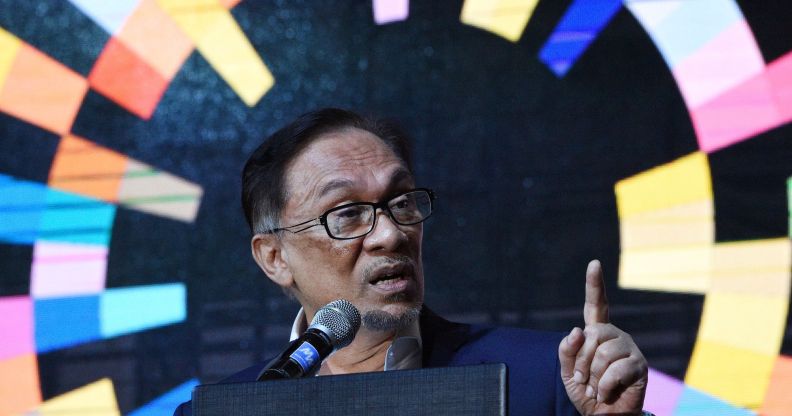
Anwar Ibrahim has twice been imprisoned under the law (TED ALJIBE/AFP/Getty)
The leader of Malaysia’s ruling coalition has called for a review of the country’s gay sex ban.
Anwar Ibrahim served a total of eight years in prison because of the colonial-era Section 377A law, in convictions condemned by human rights groups like Amnesty International and Human Rights Watch as politically motivated.
His latest stint behind bars for having gay sex—which he denies, as he also did for his first conviction—ended when he was royally pardoned and released earlier this year.
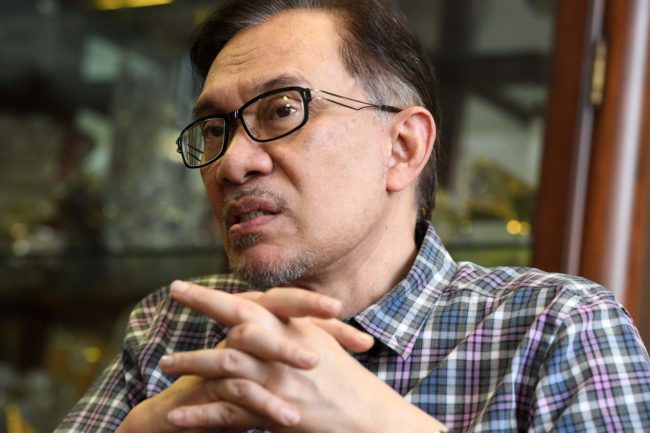
Ibrahim was royally pardoned this year (ROSLAN RAHMAN/AFP/Getty)
However, Ibrahim, who used to be deputy prime minister and is the current deputy prime minister’s husband, also said he agreed with Prime Minister Mahathir Mohamad’s comment last week that the country “cannot accept LGBT as well as the marriage of man and man or woman and woman.”
The political heavyweight told attendees at a party conference that marriage equality was not compatible with values held by the Muslim-majority country.
“The sanctity of marriage is between a man and a woman. This is our understanding and that of many other religions,” Ibrahim said, according to The Star Online.
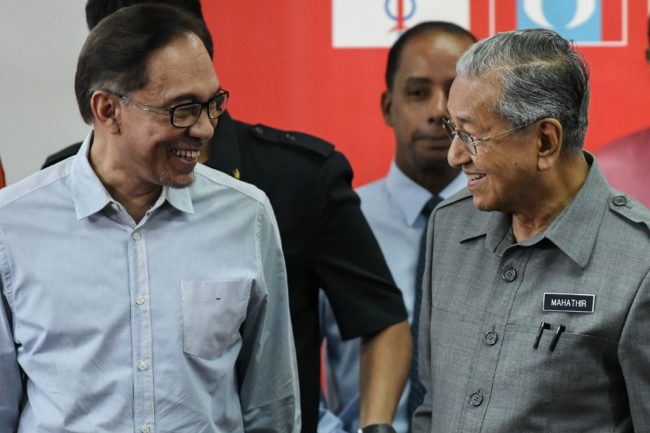
Mohamad and Ibrahim broadly agree with each other on LGBT+ rights (MOHD RASFAN/AFP/Getty)
“What I was saying is that the laws on sodomy are not fair, outdated, and need to be reviewed.
“These laws were brought in by the British to India during the times of colonisation, and Malaya at that time adopted these laws as well,” he added.
Malaysian human rights commission Suhakam recently stated that like the prime minister, it is not pushing for same-sex marriage in the country, though the group emphasised that it was fighting for anti-discrimination protections.
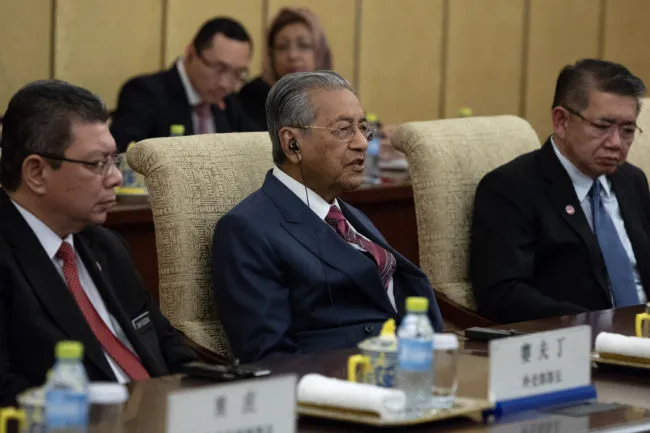
Malaysia’s Prime Minister said the country “has a different value system than the Westerners” (Roman Pilipey/Getty)
India decriminalised gay sex earlier this month, with the country’s Supreme Court unanimously ruling in favour of an end to the 157-year-old Section 377 law.
This came just days after two women in the Malaysian state of Terengganu received six lashes each for having gay sex.
Ibrahim’s wife, Deputy Prime Minister Dr Wan Azizah Wan Ismail, last month joined a growing chorus of prominent voices against LGBT+ rights in the country when she said queer citizens should hide, keeping their identities secret in order to be accepted by society.
The current backlash towards LGBT+ equality began when religious affairs minister Mujahid Yusof Rawa ordered two portraits of LGBT+ Malaysian activists be removed from an exhibition in August.
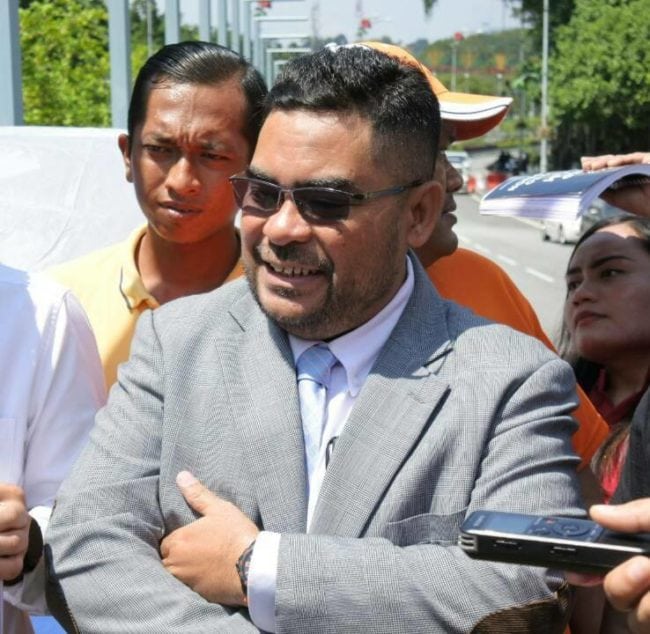
Mujahid Yusof Rawa (Dr Mujahid Yusof Rawa/facebook)
He said: “Society cannot accept LGBT being promoted because that is against norms, culture and religion.”
Since then, a series of political figures—including members of the government—have voiced disturbing views about Malaysia’s LGBT+ populace.
Latteffah Ali, state chairperson of the women’s wing of the United Malays National Organisation, said that if LGBT+ people keep pushing for equal rights, it could destroy the health and ethics of a generation.
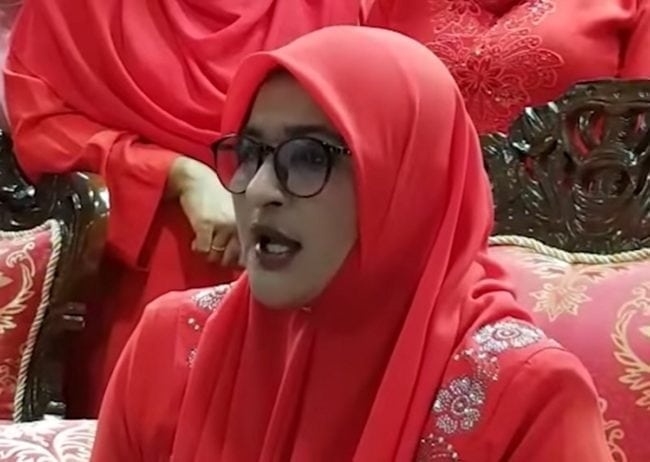
Ali said trans women shouldn’t use women’s toilets (the star online/youtube)
Malaysia’s Deputy Health Minister, Dr Lee Boon Chye, said last month that LGBT+ people suffer from an “organic disorder.”
Mahfuz Omar, Deputy Minister in the Prime Minister’s Department, said LGBT+ people need to be helped to return to their “original identities” and that allowing people to be transgender would cause chaos in society.
And in August, police raided The Blue Boy club, a gay bar in Kuala Lumpur.

